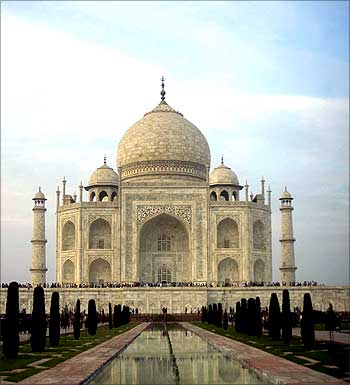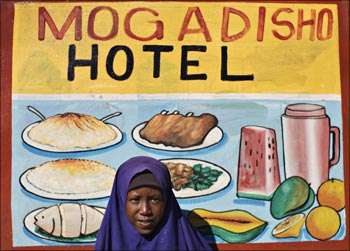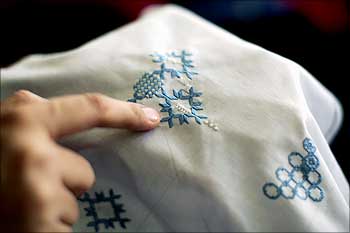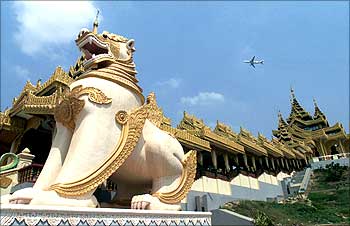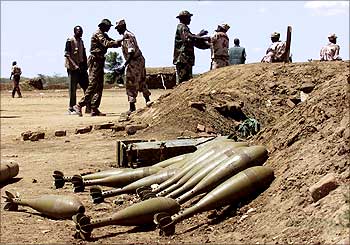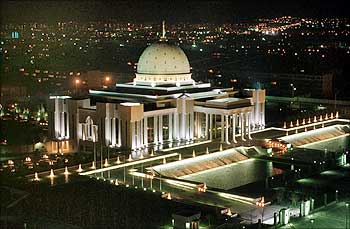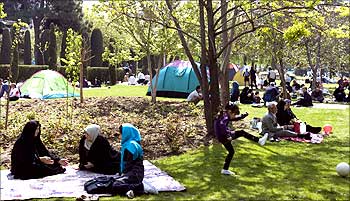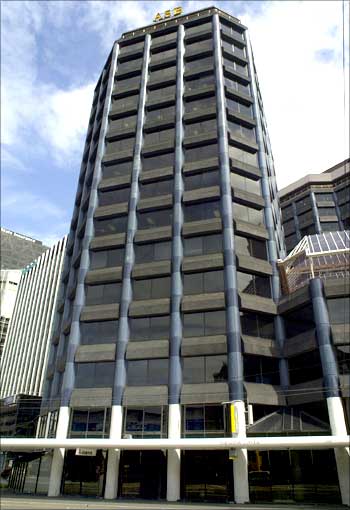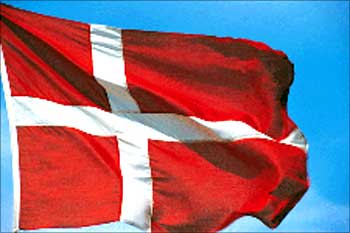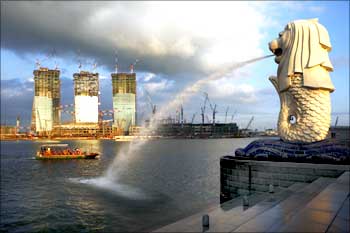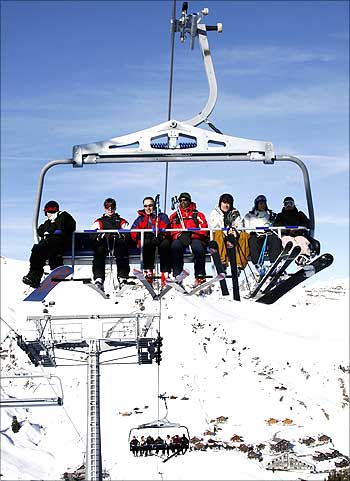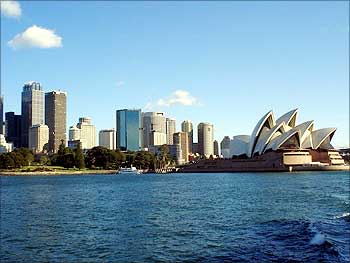 | « Back to article | Print this article |
India amongst world's most corrupt nations
India continues to be one of the most corrupt nations in the world with many of its public institutions given to rampant misdeeds. Corruption is India's bane and threatens to derail its rapidly growing economy.
The country ranks a dismal 84th in a list of 180 countries, according to Transparency International's 2009 Corruption Perceptions Index, a measure of domestic and public sector corruption.
The corruption watchdog says that many African, East European and Latin American nations fare much better than India.
If it is any consolation, India actually climbed one spot up from 85th (it's 2008 rank) to 84th. India's integrity score this year is 3.4, down from 3.5 in 2007, says the survey. Its score in 2006 was 3.3.
Till 2007, India shared the slot with China, but Beijing has managed to cut down corruption and is ranked 79th in this year's list.
However, this is not an indication that India has become more corrupt but that nations like China now appear less corrupt. While Pakistan and Bangladesh are ranked at 139, Sri Lanka is ranked at 97.
China has launched a sustained anti-corruption drive and intensified a crackdown on corruption in the public sector, investigating and prosecuting ministers, public officials and employees.
Corrupt officials above provincial levels were disciplined and preventive measures to deal with stimulus packages to tackle the financial crisis have helped keep China's score stable in 2009, though still low at 3.6.
Here's a look at the world's 10 most corrupt nations
Click on NEXT to read further...
India amongst world's most corrupt nations
Fragile, unstable and war ravaged states linger at the bottom of the Transparency Index. Somalia, with a score of 1.1 is the most corrupt nation in the world. Countries which are perceived to have the highest levels of public-sector corruption are also those plagued by long-standing conflicts, which have torn apart their governance infrastructure.
The majority of the 180 countries included in the 2009 Corruption Perceptions Index (CPI) score below five on a scale from 0 (perceived to be highly corrupt) to 10 (perceived to have low levels of corruption).
India amongst world's most corrupt nations
Afghanistan is ranked at 179 with a score of 1.3. Bribery, cartels and other corrupt practices undermine competition and contribute to massive loss of resources for development in all countries, especially the poorest ones.
Between 1990 and 2005, more than 283 private international cartels were exposed that cost consumers around the world an estimated $300 billion in overcharges, according to a recent TI report.
India amongst world's most corrupt nations
Myanmar (3rd)
Myanmar is the third most corrupt country in the world with a score of 1.4. When essential institutions are weak or non-existent, corruption spirals out of control and the plundering of public resources feeds insecurity and impunity.
Corruption also makes normal a seeping loss of trust in the very institutions and nascent governments charged with ensuring survival and stability, the study states.
India amongst world's most corrupt nations
Sudan shares the fourth place with Iraq among the most corrupt countries with a score of 1.5. Countries at the bottom of the index cannot be shut out from development efforts. Instead, what the index points to is the need to strengthen their institutions.
Investors and donors should be equally vigilant of their operations and as accountable for their own actions as they are in demanding transparency and accountability from beneficiary countries.
India amongst world's most corrupt nations
Chad is the fifth most corrupt nation with a score of 1.6. Uzbekistan is the 6th most corrupt nation with a score of 1.7. As the world economy begins to register a tentative recovery and some nations continue to wrestle with ongoing conflict and insecurity, it is clear that no region of the world is immune to the perils of corruption, TI said.
India amongst world's most corrupt nations
Turkmenistan, Iran and Haiti share the 7th place with a score of 1.8.
The overall results in the 2009 index are of great concern because corruption continues to lurk where opacity rules, where institutions still need strengthening and where governments have not implemented anti-corruption legal frameworks.
And now check out the world's least corrupt nations...
India amongst world's most corrupt nations
New Zealand is the world's least corrupt nation with a score of 9.4.
The score reflects the political stability, long-established conflict of interest regulations and solid, functioning public institutions.
India amongst world's most corrupt nations
Denmark with a score of 9.3 is the second least corrupt nation.
However, the study warns that industrialised countries cannot be complacent: the supply of bribery and the facilitation of corruption often involve businesses based in their countries.
Financial secrecy jurisdictions, linked to many countries that top the Corruption Perception Index severely undermine efforts to tackle corruption and recover stolen assets.
India amongst world's most corrupt nations
Singapore and Sweden share the third rank among the least corrupt nations with a score of 9.2. With the vast majority of countries in the 2009 index scoring below five, the corruption challenge is undeniable.
The Group of 20 has made strong commitments to ensure that integrity and transparency form the cornerstone of a newfound regulatory structure. As the G20 tackles financial sector and economic reforms, it is critical to address corruption as a substantial threat to a sustainable economic future.
India amongst world's most corrupt nations
Switzerland with a score of 9 is the 5th least corrupt nation. "Corrupt money must not find safe haven. It is time to put an end to excuses," said Labelle.
"The OECD's work in this area is welcome, but there must be more bilateral treaties on information exchange to fully end the secrecy regime. At the same time, companies must cease operating in renegade financial centres," the study says.
India amongst world's most corrupt nations
Finland and Netherlands share the 6th rank with a score of 8.9.
The G20 must also remain committed to gaining public support for essential reforms by making institutions such as the Financial Stability Board and decisions about investments in infrastructure, transparent and open to civil society input.
India amongst world's most corrupt nations
Australia, Canada, Iceland
Australia, Canada and Iceland share the 8th rank with a score of 8.7.
"At a time when massive stimulus packages, fast-track disbursements of public funds and attempts to secure peace are being implemented around the world, it is essential to identify where corruption blocks good governance and accountability, in order to break its corrosive cycle" said Huguette Labelle, Chair of Transparency International (TI).
